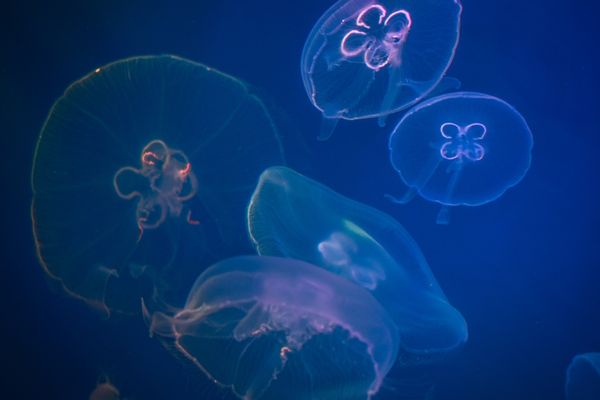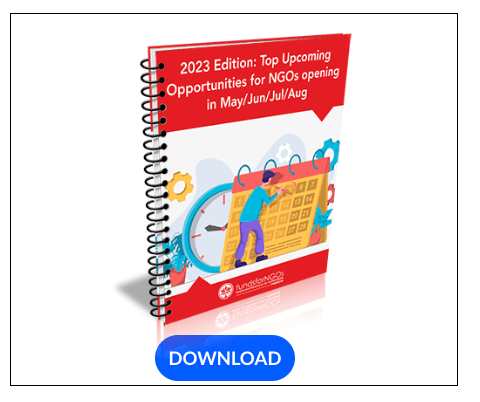
Deadline: 2-Jul-23
The Ocean Risk and Resilience Action Alliance (ORRAA) invites all parties to submit proposals for financial support to accelerate research and modelling on ocean risk and resilience to inform financial innovation as well as private and public sector policy action.
The Call is financially supported by the United Kingdom’s Blue Planet Fund and administered by the ORRAA Secretariat.
ORRAA is a multi-sector collaboration connecting the international finance and insurance sectors, governments, non-profits, and stakeholders from the Global South to pioneer finance products that incentivise investment into coastal and ocean Nature-based Solutions. ORRAA’s goal, by 2030 is to activate at least $500million of investment into this space, and in so doing, help build the resilience of at least 250 million climate vulnerable coastal people.
The UK’s £500 million Blue Planet Fund supports developing countries to protect the marine environment and reduce poverty. Its objectives are in line with the UK’s focus on protecting nature and tackling climate change in an integrated way and seeks ambitious outcomes in four interlinked areas: biodiversity, climate change, marine pollution, and sustainable seafood.
Aims
- Pioneer innovative and scalable finance and insurance products that build resilience and protect and regenerate valuable coastal and ocean natural assets, while delivering a return on investment.
- Inform, advance, and drive public and private policy commitments and action that value nature, build coastal resilience, reduce ocean risk, and accelerate the delivery of the Sustainable Development Goals (SDGs) and Global Biodiversity Framework.
Funding Information
Prospective projects can apply for either a Pilot or Project grant, depending on the level of development of their project:
- Pilot grant: Tailored for organisations to test and pilot innovative solutions.
- Between US$50,000 – US$150,000
- Up to 24 months
- Project grant: Tailored for organisations to pilot innovative solutions and scale up and replicate proven ideas in new contexts.
- Between US$150,000 – US$500,000
- Up to 24 months
Geographic Focus
- Projects should either be located or deployed in coastal countries that are Official Development Assistance (ODA), which do not conflict with applicable individual and consolidated sanctions set out by the United States. Special consideration will be given to projects located or deployed in Small Island Developing States (SIDS) and Coastal Least Developed Countries (LDCs).
- Eligible countries: Albania, Algeria, Angola, Argentina, Bangladesh, Belize, Benin, Bosnia and Herzegovina, Brazil, Cabo Verde, Cambodia, Cameroon, Colombia, Comoros, Congo, Cook Islands, Costa Rica, Cote D’Ivoire, Djibouti, Dominica, Dominican Republic, Ecuador, Egypt, El Salvador, Equatorial Guinea, Eritrea, Fiji, Gabon, Gambia, Ghana, Grenada, Guatemala, Guinea, Guinea-Bissau, Guyana, Haiti, Honduras, India, Indonesia, Jamaica, Jordan, Kenya, Kiribati, Liberia, Madagascar, Malawi, Malaysia, Maldives, Marshall Islands, Mauritania, Mauritius, Mexico, Micronesia, Montenegro, Morocco, Mozambique, Namibia, Nigeria, Nauru, Niue, Pakistan, Panama, Papua New Guinea, Palau, Peru, Philippines, Saint Lucia, Saint Vincent and the Grenadines, Samoa, Sao Tome and Principe, Senegal, Sierra Leone, Solomon Islands, South Africa, Sri Lanka, Suriname, Tanzania, Thailand, TimorLeste, Togo, Tonga, Tunisia, Tuvalu, Vanuatu, Viet Nam
Eligibility Criteria
- Project proposals must meet the following criteria to be considered by the ORRAA Secretariat for financial support. These criteria ensure that projects supported by ORRAA help to advance its mission to catalyse the investment of at least US$500 million into coastal and marine natural capital through the development and deployment of financial products that build the resilience of 250 million climate vulnerable coastal people, by 2030.
- Project proposals must fall into one of ORRAA’s priority pathways, and advance ORRAA’s mission through one of the following:
- Financial Innovation: Pioneering innovative and scalable finance and insurance products that build resilience and protect and regenerate valuable coastal and ocean natural assets, while delivering a return on investment by leveraging and influencing public, philanthropic, and private capital. Financial innovations that ORRAA has previously supported include insurance products (micro, parametric, and indemnity), finance tools (micro-finance, blended finance, and bonds), and efforts to quantify nature as an asset class (blue carbon, biodiversity and resilience credits, and natural capital accounting). However, proposals piloting other types of financial innovations are also encouraged to apply.
- Science and Research: Accelerating research and modelling on ocean risk and resilience to inform financial innovation as well as private and public sector policy action. Proposals should seek to reduce the impacts of climate and ocean change through better understanding, analysis, prediction, modelling, and management of ocean risk, and/or help improve the design and implementation of gender-sensitive ocean resilience projects in vulnerable regions.
- Policy and Governance: Informing, advancing, and driving public and private policy commitments and action that value nature, build coastal resilience, reduce ocean risk, and accelerate the delivery of the Sustainable Development Goals (SDGs) and Global Biodiversity Framework. Proposals should seek to catalyse cross-sector collaboration across the Global North and South, advance global action to address ocean risk, and improve coastal resilience with policymakers, finance leaders, and investors.
- In addition, projects must:
- Promote the development of ocean and coastal Nature-based Solutions (NbS), habitat protection practices and sustainable management, support adaptation and/or mitigation of climate change, or mitigate risk multipliers like overfishing and pollution.
- Align with and include the priorities and interests of local communities.
- Deliver enhanced economic, social, and cultural resilience for climate vulnerable coastal communities.
- Be biodiversity positive, lead to either net zero or climate positive outcomes, and “do no harm” (do not result in negative impacts on communities or the ecosystems they are designed in which to build resilience).
For more information, visit ORRAA.
